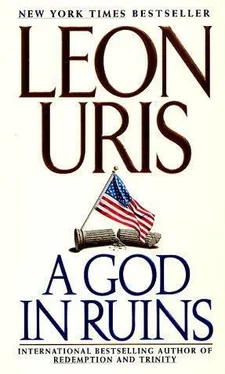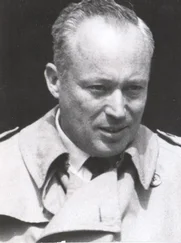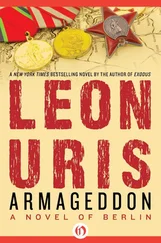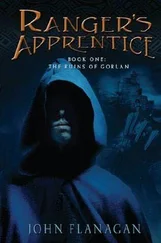Quinn said to himself, over and again, “This is what life should be all about.”
Dan O’Connell ceded his seat as state senator, and the governor selected Quinn to finish the term, even though it was a switch from Republican to Democratic.
Dan had made dramatic changes and lost some of his Brooklyn cop mentality, broadening his base and finally getting a keen and compassionate understanding of other people.
He had been confused by the roiling student protests of the Vietnam War, by the ruckus called music, and by the decline in the basic morality, yet he’d grown enough to understand the meaning of the civil rights movement.
It was good to have a son as knowledgeable as Quinn, who seemed to have a grasp on all kinds of events and was a student of human history and behavior.
With Dan and his son so close these days, Siobhan was able to free herself to take a path she longed for. Siobhan had always been a stalwart of the church. She had to make peace with Greer Little’s abortion and finally concluded that her church made mistakes. The mistakes usually came from men asked to give more than they had to give.
Siobhan soon represented Colorado as an upper-middle national committee woman. She and Dan traveled a lot on church tours of the cathedrals of grandeur in Italy and France, or they would cruise to the Alaskan glaciers, visit Buddhist temples, or charter for the Greek islands.
Quinn took over more and more of the ranch operation, bringing him into daily contact with the Martinez family. Consuelo and Pedro had four children, three of them university graduates, settled in cities as professionals with careers.
The remaining son, Juan, evolved into what seemed a natural passage from his father.
The Martinez family were twenty-five percent partners in the ranch operation. The changing of the guard from Pedro to Juan continued the close relationship with the O’Connells.
The families accorded one another the affection and respect of people who had spent a long time in one another’s kitchens. And this, too, was good. Dan had overcome a good part of his bigotry as the Martinezes largely replaced his own family back in Brooklyn.
The older people were delighted that Quinn and Juan would continue to run the ranch. Juan, in particular, was a cowboy’s cowboy, born to ride and rope, a mountain man with a graceful work ethic.
The clinker was that Carlos was missing. Quinn and Carlos had bud died so well, playing the games, dancing the music, riding like fury over the range, chasing girls, and tiptoeing into drinking and carousing when they felt manhood in their groins.
Carlos had gotten through law school in a blaze and been snatched up by a major Houston firm. His speciality, immigration. Whatever it consisted of, the family knew that Carlos would be good. Carlos was always flying off to the South and Caribbean and seemed prominent in his firm early on.
Quinn had only seen him once in the five years he was gone from Troublesome Mesa. They met in San Diego, mostly by happenstance, when Quinn was in the Corps.
Carlos had carved a hell of a life for himself, but why didn’t he ever return to Troublesome? Consuelo and Pedro visited him every year in Houston and wondered why their son remained a bachelor or why he didn’t let them know when he was traveling to Denver.
It had an eerie slant to it. Well, Quinn thought, I sure as hell didn’t get Carlos’ approval to join the Marines, and Carlos was certainly not indentured to the ranch. But he had loved the ranch. What made him divorce himself from it? In Quinn’s fantasy of the future, Carlos had always been riding alongside him.
Quinn’s homecoming brought a heartwarming letter from Carlos. He would come to the ranch for the first time in five years. When Carlos showed up, he and Quinn met each other as strangers.
Carlos wore an Italian suit, a wristwatch worth thousands, and was altogether a wealthy young dandy. It seemed that his reputation as a lawyer grew by the day.
Quinn’s thoughts of them riding and howling at the moon and tying one on fell awkwardly by the wayside.
Carlos’ visit was brief. They bumbled through their litanies, each realizing that they had outgrown one another and now lived in different worlds.
Carlos was dark and secretive and decorated like an expensive crown prince. What of his love life? Many ladies to love but none to marry, Carlos told him.
Something was strange, out of kilter with the homecoming. Carlos never
mentioned the third member of their childhood club, that little pest, Rita Maldonado. After she had graduated from Wellesley, she had stayed on in the East to do postgraduate work in creative writing and some teaching at the endless writers’ conferences.
Why had her letters to Quinn suddenly ceased? Why hadn’t she returned for Quinn’s homecoming? Well, now, all Marines freeze a part of their childhood, a perfect part. Life evolves and Quinn had made no provisions in his dreams for the adulthood of Carlos and Rita.
The rewards of his new life with his parents was countered by an emptiness over his pals.
If Carlos and Rita were Quinn’s disappointment, Reynaldo Maldonado mellowed it. They came together strongly, swapping tales of the Corps and tales of the road, conversing half the night away.
Maldonado remained unmarried but still had a collection of great beauties, particularly in Mexico, where he kept a studio in Cuernavaca. There was always a waiting line of magnificent creatures who wanted to model for him, and Quinn thought it wondrous how Mal had evaded the wrath of some jealous husband.
Each time Quinn came down to Mal’s, he was halted by the array of photographs on the mantel depicting Rita’s growth from a little girl to the present. Quinn studied the photographs each time with growing interest.
“Jesus,” he muttered one evening.
“You didn’t expect she’d stay in pigtails,” Mal said, carefully charting Quinn’s interest.
“She is really beautiful. I mean, unearthly beautiful.”
“Devastatingly so,” Mal said. “Give or take a little more of this and a little less of that, Rita is probably one of the most beautiful women in the world.”
“And she writes a lovely letter,” Quinn said. “Her letters were never
repetitious ad nauseam. She could relate any story about the wiggle on
the end of the nose of one of your models, or maybe Saturday night in
the old mining town, or the sheriff being the fattest gun in the West, or her walk through the wildflowers. You know, she was awfully pretty walking through a field of flowers, even when she was a kid, and then holding her skirts up to cross a stream.”
In contrast to his own catting around, Mal had raised Rita as a protective father with great intelligence. Rita had developed into Rita, and that was what he had prayed for.
Rita was a constant child, quietly off with her poetry, quite sweet, and quite charitable about her father’s wicked ways, for he also was a source of her growth.
Mal knew, almost from the beginning, how she had ached for Quinn from the time they first had come to Troublesome Mesa. It was something a father could do poor little about. Watching Rita progress and develop, and after Quinn broke up with Greer Little, perhaps he would notice her. Their age difference was not that awesome, but the years of separation put them on different plateaus.
She’s fully grown, Mal thought, and the homecoming fiesta is over and Siobhan and Dan are off to Florence. Well? What about it, Quinn? How many hearts were broken during your hitch in the Corps?
Читать дальше












